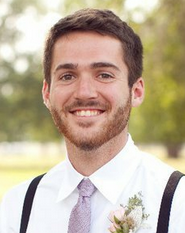 The following post is from Brent Bailey, a Master of Divinity student at Abilene Christian University. Brent will be interning with us again at The Marin Foundation this summer and you can find his blog at oddmanout.net.
The following post is from Brent Bailey, a Master of Divinity student at Abilene Christian University. Brent will be interning with us again at The Marin Foundation this summer and you can find his blog at oddmanout.net.
We’re quickly reaching a point of critical mass in our culture in which stories related to sexual minorities are nearly ubiquitous in the media. As more states and nations legalize same-sex marriage, more public figures (even NBA players!) come out, and more prominent pastors make helpful and less-than-helpful statements about homosexuality, we’re gradually acquiring a common language that enables us to communicate and connect with one another about these significant questions. Unfortunately, as the volume of the conversation grows, I’m finding it increasingly difficult to demonstrate the love of Christ in the midst of the public dialogue.
One of the dichotomies I’ve picked up in seminary is two different ways you can read the Bible. The first is to interrogate the Bible. This involves using any of a number of lenses and styles of criticism in order to analyze what Paul actually meant, or whether the gospel of Luke borrowed parts of the gospel of Mark, or how many different ways you can translate “logos,” or what Jesus thinks about women, or whether David and Jonathan were more than friends. (You can pay big dollars at Bible college to learn to do this.) The second is to invite the Bible to interrogate you. This involves an act of faith in God’s ability to speak through an ancient book into your present circumstances. It feels intensely risky and personal and is wholly unpredictable, and it’s often gut-wrenching or breathtaking.
I recently let John 8:2-11 interrogate me. That’s the story of the woman caught in adultery, of course, and it’s a story that’s as scorned among scholars as it is lauded among laypeople. As a gay Christian who’s lodged himself into ongoing talks about homosexuality, it wasn’t hard for me to predict where I’d locate myself in the narrative: Maybe I’d identify with the woman herself, wounded as collateral damage in a culture war that often feels more concerned with arguing about laws than it is about empathizing with humans. Or maybe I’d place myself in Jesus’ shoes, growing frustrated with people who want to narrow down big narratives about faith and identity into simple Yes/No questions, and I’d brazenly refuse to play that game. Unfortunately for me during this particular reading, I wasn’t interrogating the Bible. I was letting it interrogate me, and I was thus rather surprised to find myself standing in line with the Pharisees holding stones.
Because, you see, as I’ve invested more time and energy into actively engaging our culture’s discussion around homosexuality, I’ve found myself more prone to gather stones of criticism and disapproval for those with whom I disagree. I’m finding it easier to exploit other people as case studies, or evidence, or arguments rather than to honor them as children of God, because it sure helps my position if I can support it with case studies, or evidence, or arguments. In my moments of burnout, I’m more likely to resort to asking the Yes/No questions that make it simple for me to classify whether someone’s for or against me.
Maybe what’s most shocking about the John 8 story is how little anyone actually says. After Jesus levels the crowd with his shrewd suggestion—that the guiltless ones should be the first to punish the most visibly guilty one—the other Pharisees and I have nothing to say, because even we can see how far we’ve missed the mark. Gradually, they start to walk away, and in one of the story’s most dazzling details, it’s the older folks who leave first. (We might not feel surprised they’re quickest to acknowledge their own faults.) Eventually, I’m the only chump left standing in the row with a rock in my hand, and I’d rather like to slam my Bible shut so I don’t have to feel so anxious waiting all alone in the dusty silence.
Here’s what I’m supposed to do now: I’m supposed to turn and walk away. Jesus isn’t waiting for a biblical argument, a poignant confession, or even a tearful apology from me. I merely need to walk away and wordlessly acknowledge my own wickedness alongside the other Pharisees. But here’s why I don’t: I’ve learned that it’s awful strategy to admit my fault if I’m hoping for any kind of victory in our culture war. Those who demonstrate humility or even awareness of their own flaws lose face and come across as wishy-washy and impotent. Those willing to concede the deficiencies of their position might as well raise a white flag. In the John 8 story, walking away means letting Jesus get the last word in an argument that didn’t go nearly as well as I had planned it to go.
People, the good news is that we can do this differently. It involves listening and gentleness and compassion, and it never, ever results in a woman standing exposed in the courts with her accusers thirsting for blood. We don’t win or lose, because Jesus already broke the game and initiated a kingdom in which the blessed ones are the poor in spirit, the meek, and the peacemakers. We taste the tender goodness inherent in God’s moral imperatives, and that means we neither dismiss them nor hurl them at others as a means of diverting attention away from ourselves.
It begins, I think, when we acknowledge our guilt in the midst of crises that have long ago escalated past grace and mercy, when we lay down our stones and walk away. It continues when we move from acknowledging our general guilt to naming more specific areas of imperfection, verbalizing those flashes of self-awareness to the people in our lives. (An aside for other bloggers: This is a good time in the process for us to ask ourselves the tough questions. Am I too concerned with page views and Likes? Do I aim to write something viral or something true and helpful? Do I present a version of myself that’s radically different from who I actually am?) It reaches its apex when we become the kind of people who invite such vulnerability and candor from others, even from our opponents, because it doesn’t even occur to them that they’d need to pretend around us.
One need not look far to find stones ripe for the throwing. One need not look much farther to find potential targets for those stones. What’s increasingly rare in our culture—and what the simple, piercing suggestion of Jesus calls us to—is walking away when we find ourselves poised to strike.
Much love.











